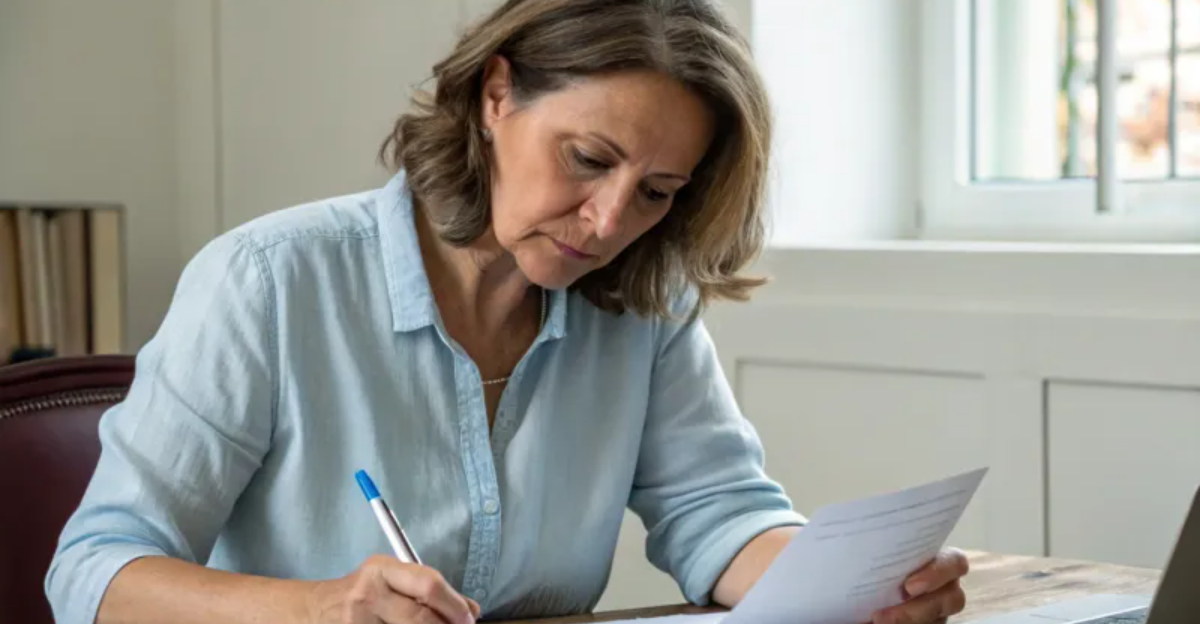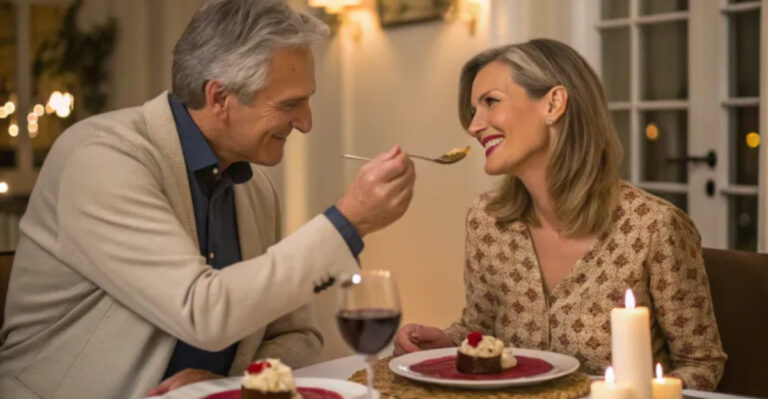32 Hard Lessons I Learned After My Husband Of 15 Years Left Me Nothing In His Will
Fifteen years of marriage. And when it was all over, I wasn’t in his will. Not mentioned. Not named. Not protected.
The silence on that paper said more than any final words ever could. I didn’t just lose my husband—I lost the life I thought we’d built together.
What followed was grief tangled with legal battles, financial shocks, and questions I should’ve asked long before it was too late. These are 32 lessons I learned the hard way—so maybe someone else doesn’t have to.
1. You can sleep next to someone for years and still not know everything
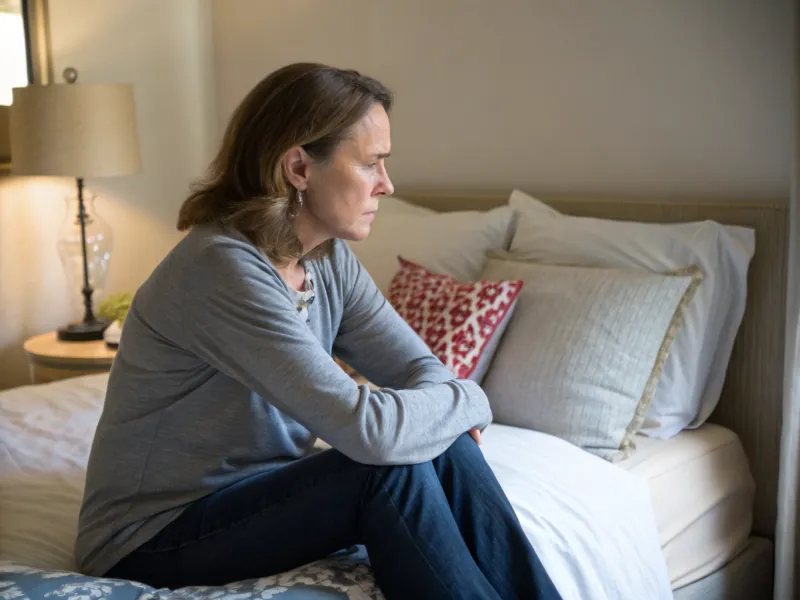
After years of marriage, I believed I knew my husband inside out. His laughter, his moods, even his secrets—or so I thought. But as I sat alone, staring at the space he once filled, I realized how much of him was unknown to me. It’s a quiet epiphany, understanding that intimacy doesn’t always equate to transparency.
In the dim light of our bedroom, I pondered over his decisions, the ones he never shared. A jigsaw puzzle missing pieces, leaving me outside his hidden world. His silence on crucial matters like the will was deafening.
This experience taught me the importance of ongoing dialogue. It’s easy to assume knowledge, but relationships thrive on open conversations and shared realities.
Trust isn’t just about faith in love; it’s about trusting each other with the truth, however inconvenient or painful. In those silent nights, I vowed never to let assumptions replace actual understanding again. The journey of knowing someone is endless, and perhaps that’s its most poignant beauty.
2. Love doesn’t always come with legal protection

Love, in its purest form, feels unassailable. But when stripped down to legalities, it can leave you vulnerable. As I unfolded the legal papers, the romantic notion that love is all-encompassing crumbled before me.
We built a life together, yet in his absence, I found myself unprotected, outside the safety net I assumed was there. Love, it seems, doesn’t automatically translate into legal security.
The absence of legal protections in our relationship was a harsh wake-up call. While love fills the heart, it’s the paperwork that often secures the future. I learned to separate emotional bonds from legal ones, understanding that both are essential in crafting a life together.
It’s a sobering realization—true love needs the backing of legal assurance to ensure one’s wellbeing in unforeseen circumstances. In love and law, one should never feel exposed or unguarded. This lesson has reshaped my understanding of commitment and protection.
3. “We talked about it” doesn’t mean it’s written down
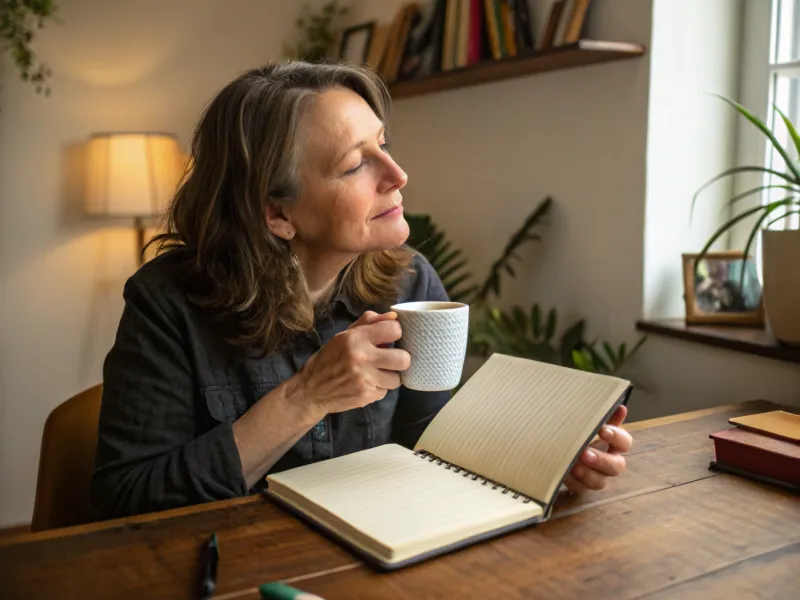
Conversations over coffee, whispered dreams in hushed tones—these were the moments we shared our future. Yet, I discovered that shared words, without documentation, are like vapor, dissipating without a trace.
The discrepancy between what we discussed and what was actually documented became painfully apparent. I had rested on a verbal safety net, only to find myself in freefall.
The assumption that spoken agreements carry weight in critical times is a dangerous misconception. I learned that every significant conversation deserves a paper trail—a tangible record to anchor promises made in the moment.
From future plans to financial agreements, everything has a place on paper now. This isn’t just about protecting myself; it’s about respecting the commitments we make, ensuring they’re honored beyond words.
The lesson: meaningful talks must transition to written truths to hold real-world impact.
4. If it’s not on paper, it doesn’t exist

Promises spoken in earnest can feel as solid as granite, yet without paper, they vanish like whispers in the wind. This was a harsh truth I faced, standing on the precipice of financial and emotional uncertainty.
Our lives are built on the assurance of shared promises, but I learned that without documentation, these promises are nothing more than memories. The absence of my name in his will underscored the importance of having everything in writing.
It’s a simple mantra that now guides me: Anything important deserves to be written down. Whether it’s financial arrangements or future plans, putting it down on paper transforms intentions into actionable reality.
This lesson reshaped my perspective on agreements, urging me to solidify them in ink. It’s not about mistrust; it’s about ensuring clarity and certainty for all involved. If it’s not on paper, it might as well not exist.
5. Verbal promises don’t hold up in probate court
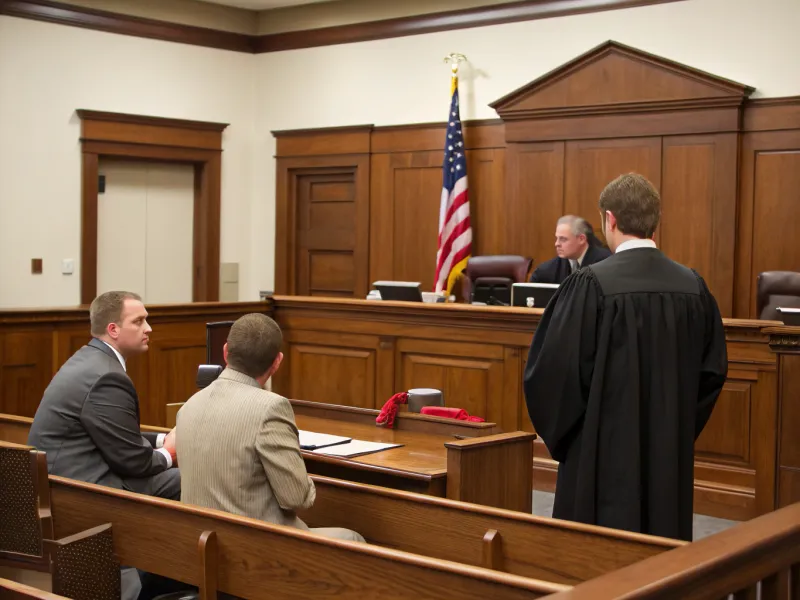
In the echoing halls of probate court, I realized the fragility of verbal promises. Those heartfelt assurances, once shared between us, crumbled under the court’s scrutiny.
The legal system is a realm of documentation, not sentiment. I learned this the hard way, as my husband’s words, once so reassuring, failed to stand against the cold, unyielding need for written proof.
Without a documented will, all that remained were my memories of his promises. But memories, I discovered, hold little weight in legal proceedings. This experience cemented the importance of formalizing every promise that has future implications.
Now, I ensure that all verbal agreements are swiftly translated into written contracts. This isn’t just a safeguard; it’s a commitment to preserving the sanctity of our promises beyond the spoken word. A court of law needs more than just good faith; it needs evidence.
6. People will take what they can—even if you’re grieving

Grief is supposed to be a time of reflection and healing, yet I found myself in a battleground of possessions and claims. In the midst of mourning, I was faced with an unsettling truth: people will seize opportunities, regardless of the emotional cost to others.
As family and acquaintances descended upon our shared life, I witnessed a disconcerting eagerness to claim what they deemed theirs. This lesson was stark and uncomfortable—grief doesn’t shield you from others’ opportunism.
Learning to stand firm, even when heartbroken, became essential. I had to protect my interests and those of my children, setting boundaries amidst chaos. This wasn’t just about material possessions; it was about safeguarding memories and respect.
In a world where empathy can sometimes take a backseat, I learned to blend vulnerability with vigilance, ensuring that I emerged from grief with dignity intact. This experience has forever changed how I approach others during their times of loss.
7. His family had more power than I ever realized
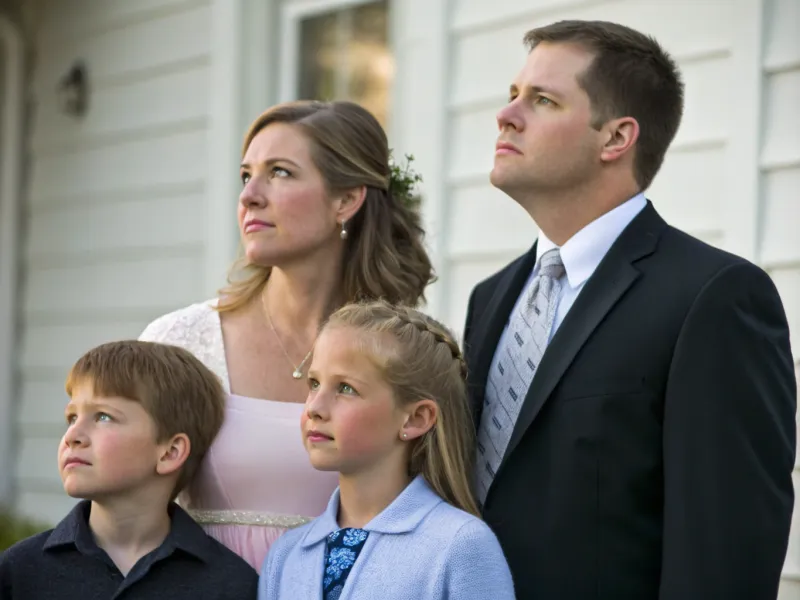
The dynamics of power within families often lie hidden until they’re thrust into the spotlight. In the aftermath of my husband’s passing, I discovered just how influential his family truly was.
Power isn’t always overt. It can linger in the unspoken agreements, the familial bonds that dictate decisions without explicit consent. As I navigated my husband’s will, I realized the subtle yet profound control his family wielded over his choices.
This realization forced me to renegotiate my understanding of family roles and influence. I learned that being part of a family doesn’t always equate to having a voice, and assumed bonds can mask deeper, more complex power structures.
Recognizing these dynamics was crucial in reclaiming my own agency. Now, I actively engage with all layers of family influence, ensuring my voice is not just heard but considered in decisions that impact us all.
8. Joint accounts aren’t always as “joint” as you think
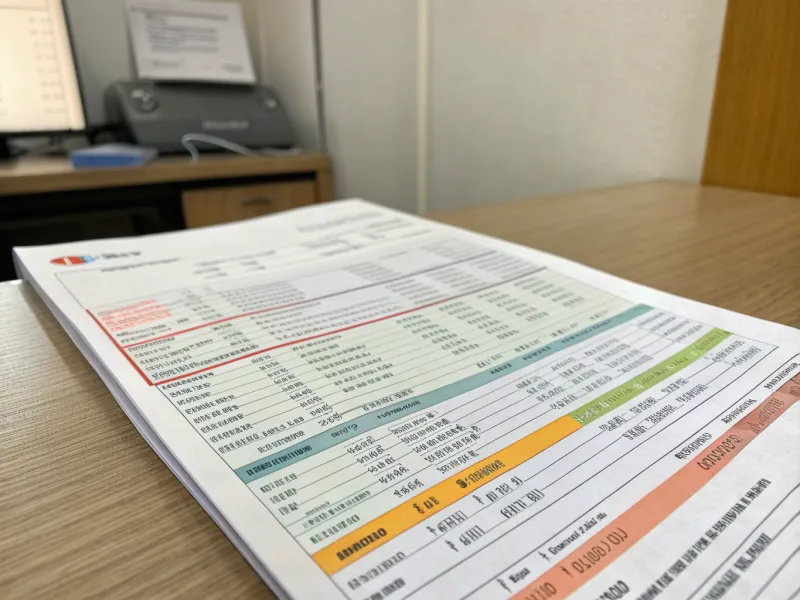
The concept of joint accounts often suggests a shared, collaborative financial life. Yet, I discovered that this perception can be misleading. Our “joint” accounts masked disparities I hadn’t anticipated.
When faced with the reality of my husband’s financial decisions, I realized that joint accounts can harbor secrets. Transactions and allocations I was unaware of came to light, highlighting the importance of transparency.
This experience taught me to treat joint accounts not as a symbol of unity but as a practical tool requiring regular oversight. A shared account should reflect mutual decisions and understandings, not hidden agendas.
I now approach joint finances with a newfound diligence. Regular reviews and open discussions have become essential to maintaining trust and clarity. In this realm of shared resources, understanding and communication are paramount to prevent financial surprises.
9. Being married doesn’t automatically mean you’re provided for

Marriage promises partnership, yet it doesn’t always guarantee provision. This stark truth emerged as I faced the reality of my husband’s financial planning—or lack thereof.
Despite years of shared life, I found myself unprepared and unsupported after his passing. The assumption that marriage inherently includes financial security was a dangerous misconception.
This experience reshaped my understanding of marital responsibilities, emphasizing the need for proactive financial planning. Being a spouse doesn’t automatically entitle you to provision; it requires active participation in financial decisions.
I learned to advocate for my financial future, ensuring that I’m not left vulnerable again. This isn’t just about financial protection; it’s about respecting the partnership marriage represents, where both voices and needs are valued and addressed.
10. Estate plans aren’t romantic, but they matter
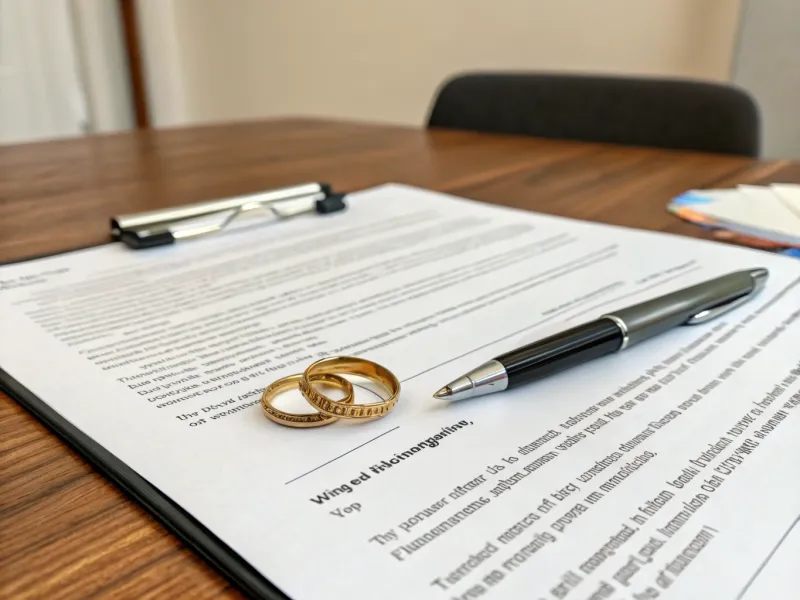
Estate planning rarely features in romantic narratives, yet it forms a crucial aspect of marital life. As I grappled with the absence of such plans, I realized their undeniable importance.
Our love story, though beautiful, had overlooked this essential component. The lack of an estate plan left me facing uncertainty at a time when I needed stability most.
This experience highlighted the need to integrate practical considerations into our romantic lives. Estate plans, though unromantic, provide security and clarity, ensuring that love is accompanied by foresight.
I advocate for open discussions around estate planning with loved ones. It’s not just about safeguarding assets; it’s about respecting the future we envision together, ensuring it is protected and honored in all circumstances.
11. I should’ve asked more questions—and insisted on real answers
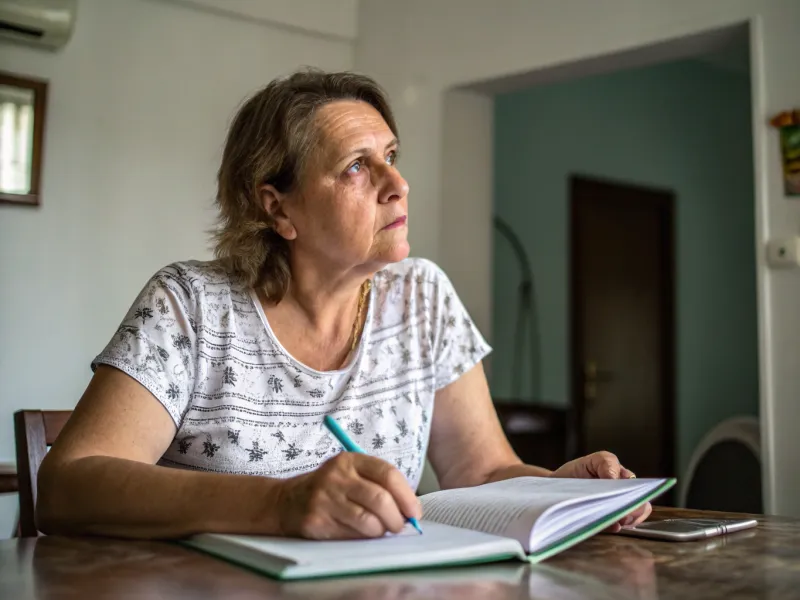
Questions are powerful, yet I often hesitated to ask the ones that mattered most. Reflecting on my husband’s decisions, I realized I had settled for vague reassurances instead of seeking concrete answers.
The reluctance to probe deeper left me with uncertainties that, when faced with loss, became glaring gaps in my understanding. I learned that asking questions isn’t about mistrust; it’s about clarity and preparedness.
This experience taught me to prioritize honest conversations, to insist on transparency even when the answers might be uncomfortable. It’s about building trust through openness, ensuring no topic is too difficult to discuss.
Now, I make it a point to ask the questions that linger, sharing them with those I love. Seeking answers is an act of care, ensuring our shared future is built on mutual understanding and respect.
12. Avoiding hard conversations doesn’t protect a marriage—it just delays the fallout
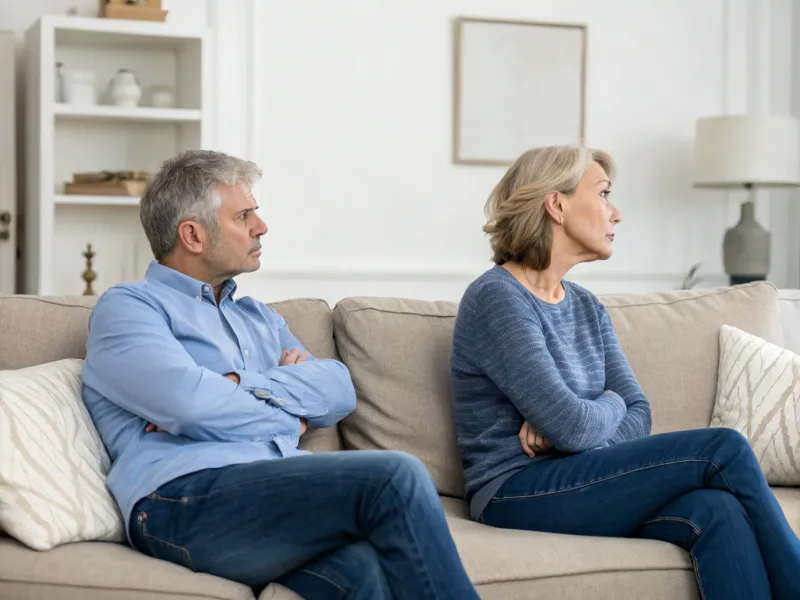
Silence can feel like a refuge, but it’s often a precursor to misunderstanding. In my marriage, avoiding uncomfortable conversations seemed easier than confronting them. Yet, in the aftermath, I learned that this avoidance merely delayed inevitable issues.
The unspoken topics, those hard discussions we sidestepped, eventually surfaced, leaving me to navigate through assumptions and uncertainties alone. Avoidance had not protected our marriage; it had eroded its foundation.
This experience taught me the value of addressing difficult topics head-on. It’s not about confrontation, but about ensuring a solid, transparent partnership that can weather any storm. Open communication is the bedrock of lasting connection, not something to fear or evade.
13. “I trust him” shouldn’t mean “I don’t need to double-check”

Trust forms the core of any relationship, yet it shouldn’t eliminate the need for verification. In my marriage, trust often translated to complacency, a belief that everything was as it should be.
But trust without verification left me vulnerable. As I reviewed our life’s documents, I realized the gaps that had been overlooked, assumptions that had gone unquestioned.
This experience redefined how I perceive trust. It doesn’t mean blind faith; it means having the confidence to ensure that everything aligns with our mutual understanding.
Now, I approach trust with a blend of confidence and diligence. Double-checking isn’t a sign of doubt; it’s an affirmation of responsibility and shared commitment. In relationships, trust thrives when paired with transparency and accountability.
14. People treat widows very differently than wives
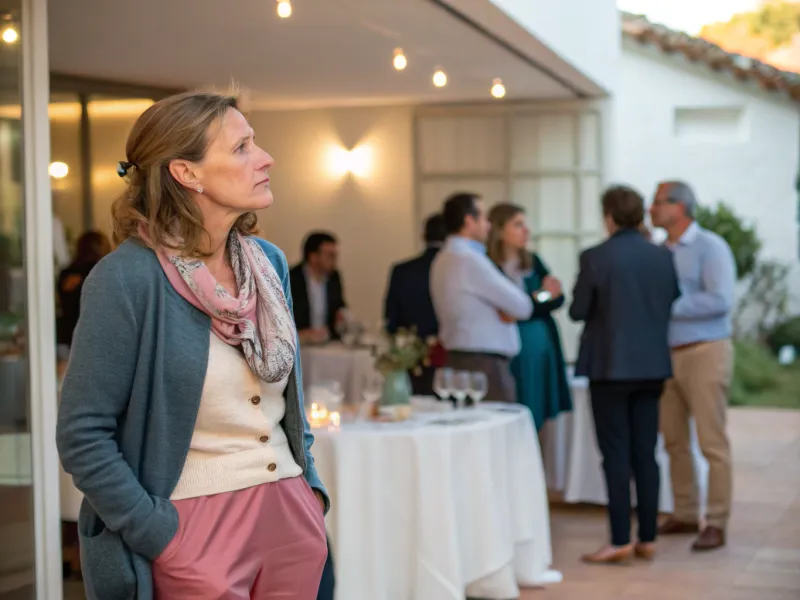
There’s a quiet yet profound shift in how you’re perceived when your marital status changes from wife to widow. I noticed it in the way people approached me, their interactions tinged with pity or avoidance.
As a widow, I felt the societal shift—a reduction of identity to my loss rather than my life. This change taught me how differently the world treats you based on marital status, often ignoring the person in favor of the circumstance.
Navigating this social landscape required resilience, a redefining of self beyond the label of widow. I learned to assert my identity, ensuring I remained visible and engaged in life rather than shrouded by others’ perceptions.
This experience has empowered me to challenge societal norms, advocating for a recognition that honors the individual beyond their marital or widowed status.
15. Grief feels different when it’s layered with betrayal
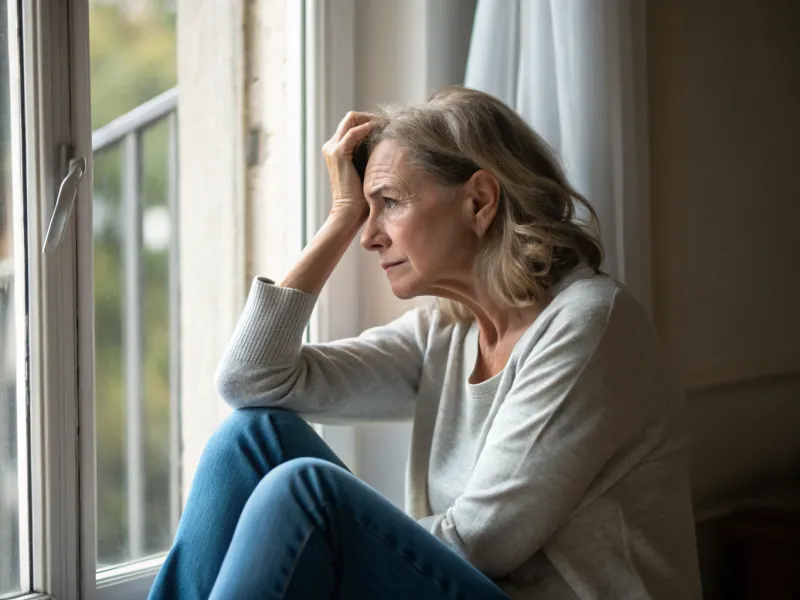
Grief is already a complex emotion, but add betrayal to the mix, and it becomes something else entirely. As I mourned my husband, I also grappled with the sting of exclusion from his will.
This duality of emotion was challenging. Grieving a loved one while feeling betrayed by their choices created an emotional labyrinth difficult to navigate.
Through this experience, I learned that it’s okay to feel multiple emotions simultaneously. Mourning doesn’t have to be pure sadness; it can include anger, confusion, and betrayal.
I embraced these emotions, allowing myself to feel them fully rather than suppressing them. This honesty with myself became a healing process, teaching me that grief is multifaceted and deeply personal, shaped by our unique circumstances.
16. It’s possible to mourn someone and still be furious with them
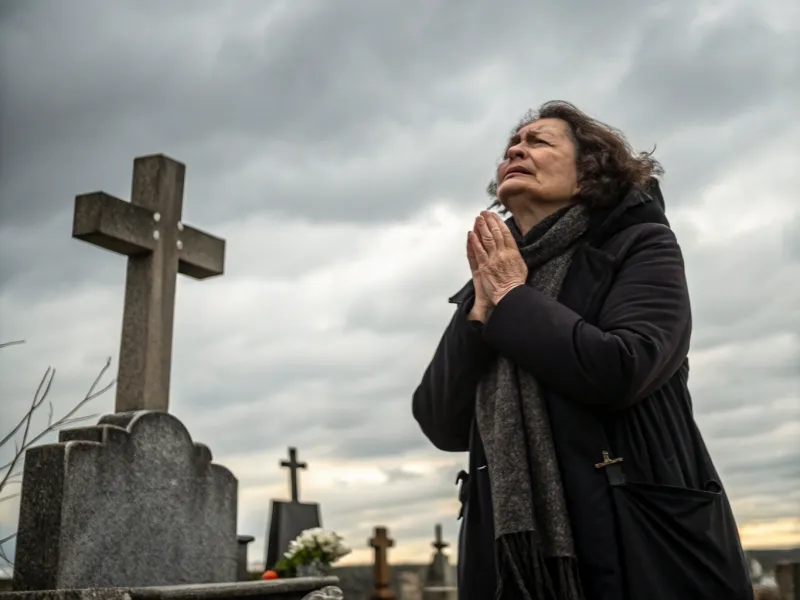
Standing at my husband’s graveside, I felt a maelstrom of emotions—sorrow entwined with anger. Mourning him didn’t erase the frustration at being left out of his will.
This juxtaposition of feelings was unsettling, yet I realized it was entirely valid. Grief and anger coexisted, each demanding acknowledgment.
I learned that mourning isn’t a singular emotional journey. It’s possible to love someone deeply and be angry at them simultaneously. This realization allowed me to process my emotions without guilt, embracing the complexity of my feelings.
Through this, I found peace in accepting that emotions are not black and white. Mourning and anger, though seemingly contradictory, are both part of the healing process, each providing insight and release.
17. Dying doesn’t erase the damage someone caused
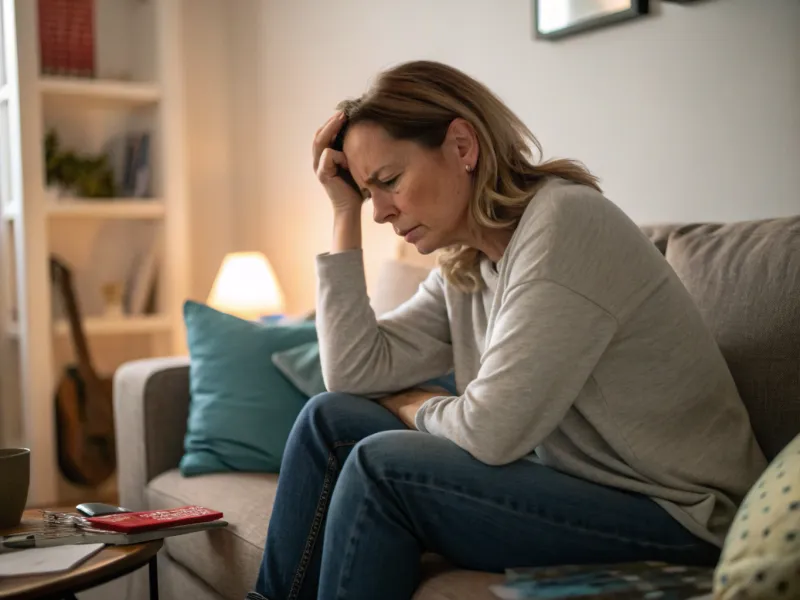
Death often casts the departed in a softer light, yet it doesn’t erase the hurt they might have caused. My husband’s passing didn’t absolve the pain his decisions left behind.
I learned that dying doesn’t automatically grant absolution. The issues we leave unresolved continue to affect those left behind, shaping how we remember them.
This realization was crucial in processing my grief. It allowed me to confront the impact of his actions honestly, acknowledging the damage while still cherishing the love we shared.
In the end, I found healing in accepting both the positive and negative aspects of our relationship. Dying may conclude a life, but it doesn’t end the emotional legacies left behind.
18. I had to unlearn everything I believed about fairness
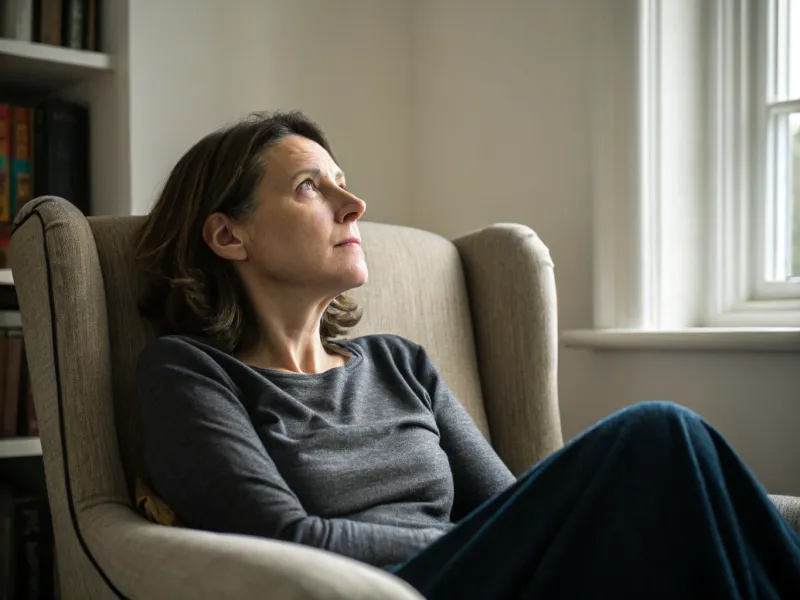
The concept of fairness, once so clear, blurred in the wake of my husband’s passing. I believed in a just world where effort and love were rewarded, yet his will revealed a starkly different reality.
Unlearning this belief was challenging. I had to reconcile my understanding of fairness with the uneven outcomes life sometimes presents.
This experience taught me that fairness isn’t guaranteed; it’s a construct that often doesn’t align with reality. I learned to navigate life’s inequities with grace, focusing on what I can control.
Through this journey, I redefined my sense of justice, understanding that fairness is subjective and not always reflective of our efforts. In accepting this, I found a new equilibrium, embracing life’s complexities with resilience.
19. Being the “good wife” doesn’t guarantee anything
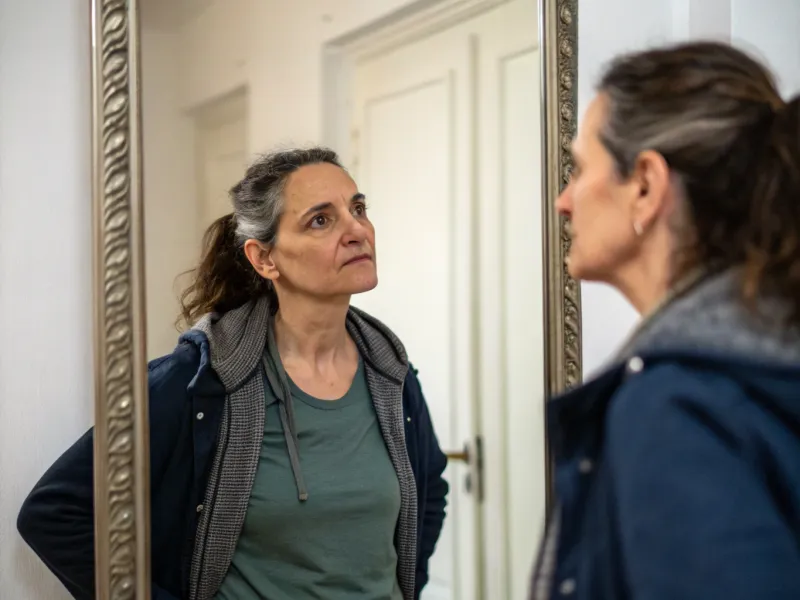
For years, I embraced the role of the “good wife,” believing it would secure stability and love. Yet, my husband’s will revealed that fulfilling this role wasn’t a guarantee of security or acknowledgment.
This realization forced me to question the expectations placed on women in marriages. Being supportive and nurturing doesn’t always translate into reciprocal consideration or protection.
I learned that defining myself by traditional roles limited my personal growth and autonomy. Instead, I began to focus on being true to myself, independent of societal expectations or marital labels.
This shift in perspective empowered me to claim my identity beyond the confines of “good wife,” embracing a more authentic and self-determined path. I’ve learned that true fulfillment comes from within, not from adherence to outdated roles.
20. Some lawyers are kinder than your own family

In the midst of the legal turmoil following my husband’s death, I found solace in an unexpected ally—my lawyer. While family dynamics shifted and strained, this professional offered understanding and guidance.
I learned that kindness and support can come from surprising places. My lawyer’s empathy and patience were invaluable during this challenging time, contrasting sharply with the fractured family support I experienced.
This experience taught me to remain open to help from all quarters, recognizing that professional relationships can sometimes provide the empathy and support we crave.
I emerged from this ordeal with a newfound appreciation for individuals who step up when others step back, understanding that support isn’t limited to familial ties. True kindness is a choice, made by those who see beyond their own interests.
21. Protecting yourself isn’t selfish—it’s survival

In the aftermath of my husband’s passing, I realized the importance of self-preservation. Initially perceived as selfish, I learned that protecting oneself is vital for survival, especially in uncertain times.
This shift in perspective was empowering. I began to prioritize my needs, ensuring my financial and emotional wellbeing were safeguarded. It’s not about neglecting others, but about ensuring my stability to better support those around me.
Through this experience, I discovered that self-care isn’t selfish; it’s a necessary foundation for resilience and empowerment. I learned to advocate for myself, ensuring that my future was secure and protected.
Now, I approach life with a balanced view of self-preservation, understanding that my wellbeing is crucial to navigating life’s challenges with strength and confidence.
22. I stopped apologizing for asking about money

Money, once a taboo topic, became a central focus as I grappled with my husband’s financial decisions. Initially, I found myself apologizing for seeking clarity, but I soon realized this hesitance was misplaced.
Asking about finances isn’t an intrusion; it’s a necessity for understanding and empowerment. I learned to shed the guilt associated with financial inquiries, embracing these discussions as a right, not a favor.
This experience shifted my attitude towards money, enabling me to approach financial matters with confidence and assertiveness. It’s about taking charge of my financial future, ensuring transparency and informed decision-making.
23. “It’s not about the money” is something people say when they’ve never needed it
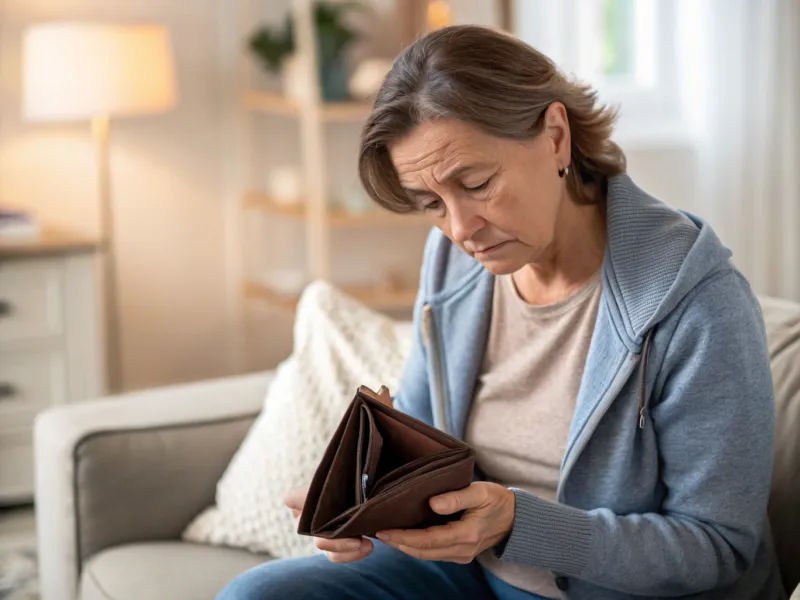
The phrase “it’s not about the money” often implies a disdain for material concerns, yet I learned that financial security plays a crucial role in overall wellbeing.
When faced with financial instability after my husband’s passing, I understood the vital importance of money in securing a stable life. It’s easy to dismiss financial concerns when one isn’t reliant on them for survival.
This experience taught me to appreciate the role money plays in facilitating freedom, choice, and peace of mind. It’s not about materialism but about ensuring a secure foundation to build upon.
I now approach financial matters with a balanced perspective, recognizing that money is a tool necessary for empowerment and security. It’s about ensuring my needs are met, providing stability in an ever-changing world.
24. You don’t know how alone you are until you really need help
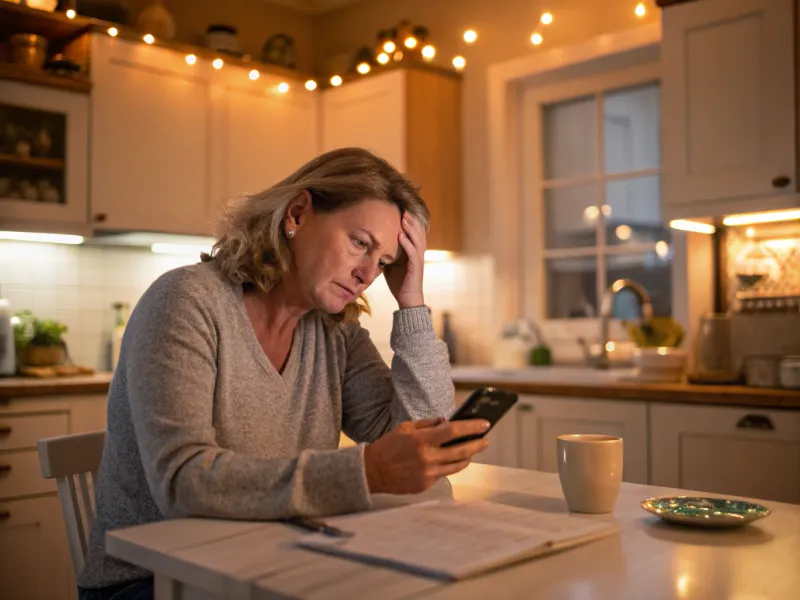
In times of need, the reality of one’s support network becomes starkly apparent. I discovered how alone I was only when I reached out for help during my husband’s legal proceedings.
The absence of expected support was a sobering lesson. Friends and family, once readily available, seemed distant when I needed them most. This experience taught me the importance of cultivating a reliable support system before it’s truly necessary.
I learned to seek out those who consistently showed up, valuing quality over quantity in relationships. It’s about surrounding myself with those who offer genuine support, even if they’re few.
I prioritize building meaningful connections, ensuring I’m never as isolated as I felt during that trying time. This lesson in self-reliance and community has reshaped how I approach relationships and support networks.
25. Getting organized saved my sanity
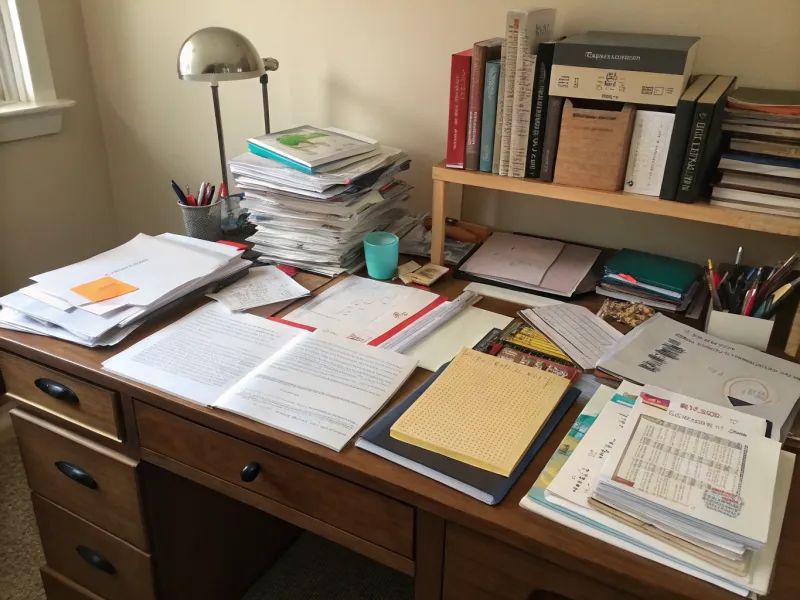
Amidst the chaos of estate management and emotional upheaval, organization became my anchor. The process of sorting through paperwork, decluttering my life, and establishing order brought a much-needed sense of control.
The act of organizing was therapeutic, offering clarity amidst confusion and chaos. It allowed me to tackle each task methodically, reducing overwhelm and stress. This lesson taught me that organization is not just about tidiness; it’s a tool for mental clarity and emotional resilience.
I learned to break tasks into manageable steps, prioritizing them according to urgency and importance. This approach transformed the seemingly insurmountable into achievable tasks.
26. It’s okay to be angry at someone who’s no longer here
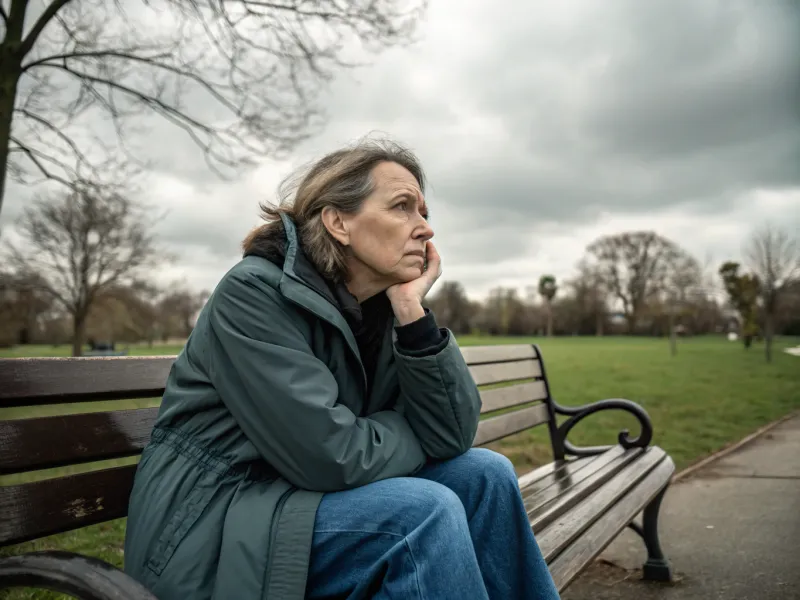
The passing of a loved one doesn’t erase unresolved emotions. As I reflected on my husband’s decisions, I felt anger alongside sorrow. It was a complex emotional landscape, accepting that my feelings were valid even in his absence.
This anger surprised me, but I learned that it’s a natural part of the grieving process. Mourning isn’t limited to sadness; it encompasses a spectrum of emotions, each deserving acknowledgment.
I embraced this anger as part of my healing journey, allowing it to coexist with my grief. This acceptance helped me process my feelings honestly, understanding that it’s okay to hold onto anger, even towards someone no longer here.
Through this, I found a path to peace, recognizing that emotions are intertwined and complex, each contributing to my journey of healing and understanding.
27. The people who show up during legal chaos are not always who you expect
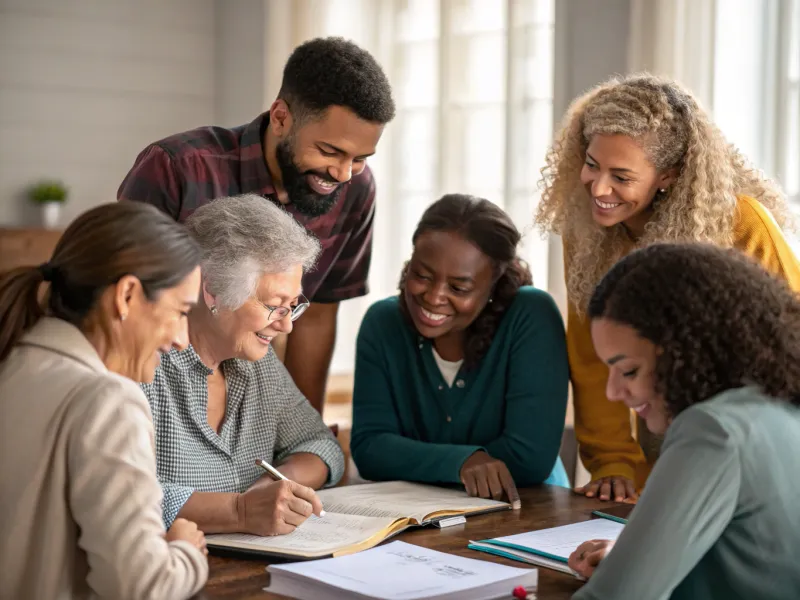
When navigating the legal chaos after my husband’s death, I discovered that support came from unexpected quarters. People I hadn’t anticipated were there, offering assistance and empathy.
This experience taught me the value of remaining open to help, recognizing that those who step forward may not always be the ones you expect. It’s a reminder that human connections are unpredictable, often revealing hidden kindness.
I learned to appreciate these unexpected allies, understanding that support isn’t limited to those closest to us. Sometimes, it’s the peripheral connections that become our strongest anchors.
This lesson in openness has enriched my understanding of community and support, teaching me that help often comes from the most surprising places.
28. Closure doesn’t come from paperwork
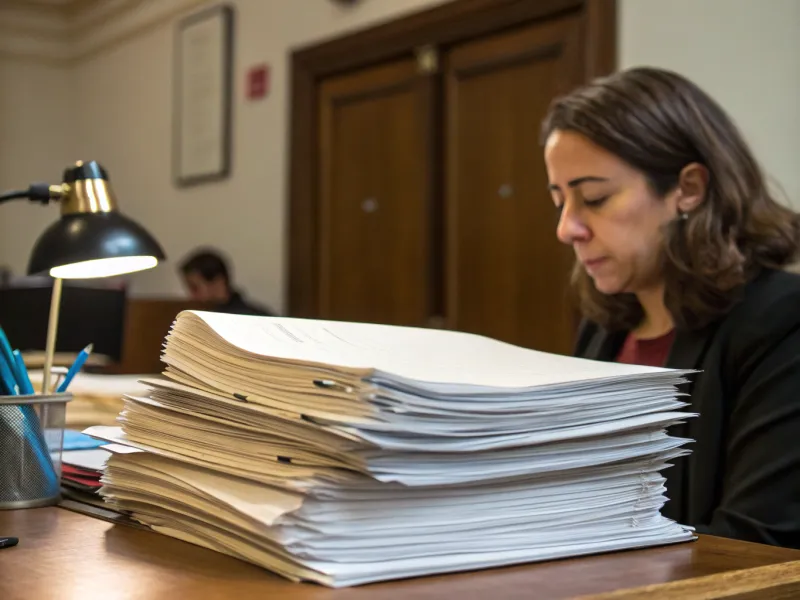
In the pursuit of closure, I realized that legal paperwork doesn’t provide the peace one might expect. Finalizing my husband’s estate was necessary, but it didn’t ease the emotional turmoil left behind.
Closure, I learned, isn’t found in documents but in the personal journey of acceptance and understanding. The formalities of estate management are just a part of the process, not the conclusion.
This experience taught me to seek closure through emotional healing, allowing myself to process the loss beyond legalities. It’s about finding peace within, not in paperwork.
Closure isn’t a destination reached through signatures; it’s a personal evolution towards understanding and peace.
29. I no longer leave anything important unsaid—or unsigned

In the aftermath of loss, I realized the importance of clear communication and documentation. The regrets of unspoken words and unsigned papers lingered heavily.
This experience taught me the value of expressing feelings and intentions openly, ensuring nothing important is left unaddressed. Communication is as vital as legal documentation in maintaining relationships and securing futures.
I now approach life with a proactive mindset, ensuring that my thoughts and wishes are both communicated and documented. It’s about preventing future regrets by taking responsible action in the present.
Through this practice, I’ve found peace in knowing that my intentions are clear, and my loved ones are never left guessing. It’s a commitment to clarity, honoring both my voice and my legacy.
30. Next time, I won’t leave my future in someone else’s hands
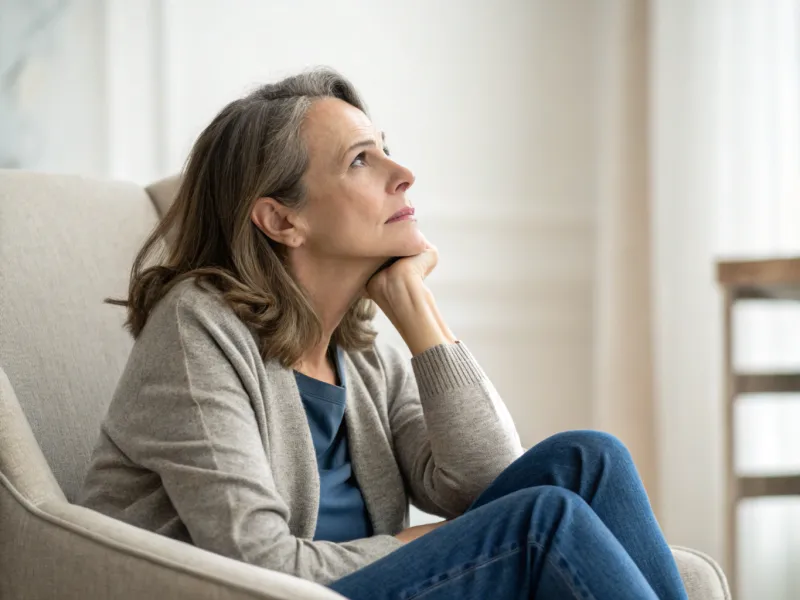
The experience of being left out of my husband’s will taught me the importance of taking control of my own future. Relying solely on someone else for security proved to be a precarious position.
I learned that while partnership is valuable, autonomy is essential. I must actively shape my path, ensuring that my future reflects my own wishes and needs, not just those of others.
This realization was empowering, prompting me to take charge of my financial and personal decisions. It’s about creating a balance between shared journeys and individual empowerment.
31. The Illusion of Financial Security

The illusion of financial security can shatter instantly. Without warning, I found myself questioning every assumption about our shared assets.
What I once believed was ours turned out to be his alone, a revelation that left me in disbelief. Discovering the truth forced me to reassess my understanding of our financial standing and my own future.
It’s astonishing how easily one can be lulled into a false sense of security.
Did you know that over 50% of married individuals never review their partner’s estate plans? This statistic became a personal wake-up call to never assume shared wealth.
32. The Strength I Didn’t Know I Had
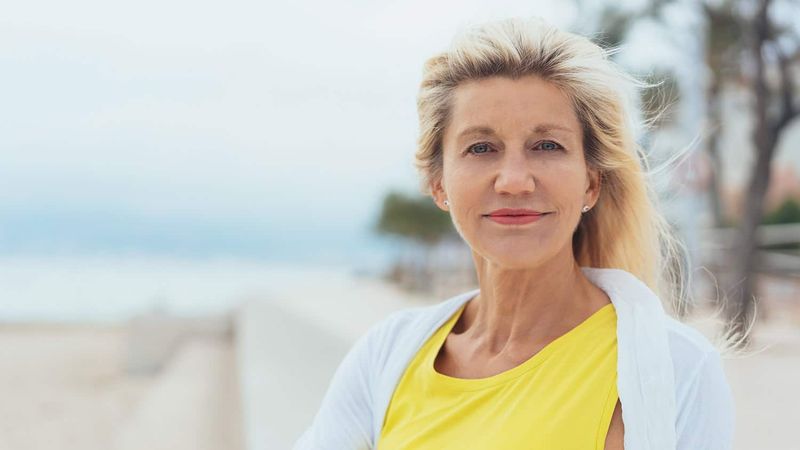
Surprisingly, adversity unveiled a strength I never knew I possessed. Faced with daunting legal battles and emotional turmoil, I stood firm, determined to navigate the challenges.
Each document was a mountain, yet I climbed them with newfound resilience.
It’s remarkable how inner fortitude emerges when least expected, transforming vulnerability into empowerment.
A fun fact: Studies show that adversity can boost personal growth, reinforcing the belief that challenges often lead to unexpected inner discoveries. Embracing this strength, I realized I was more than capable of charting my own course, independent of past dependencies.

